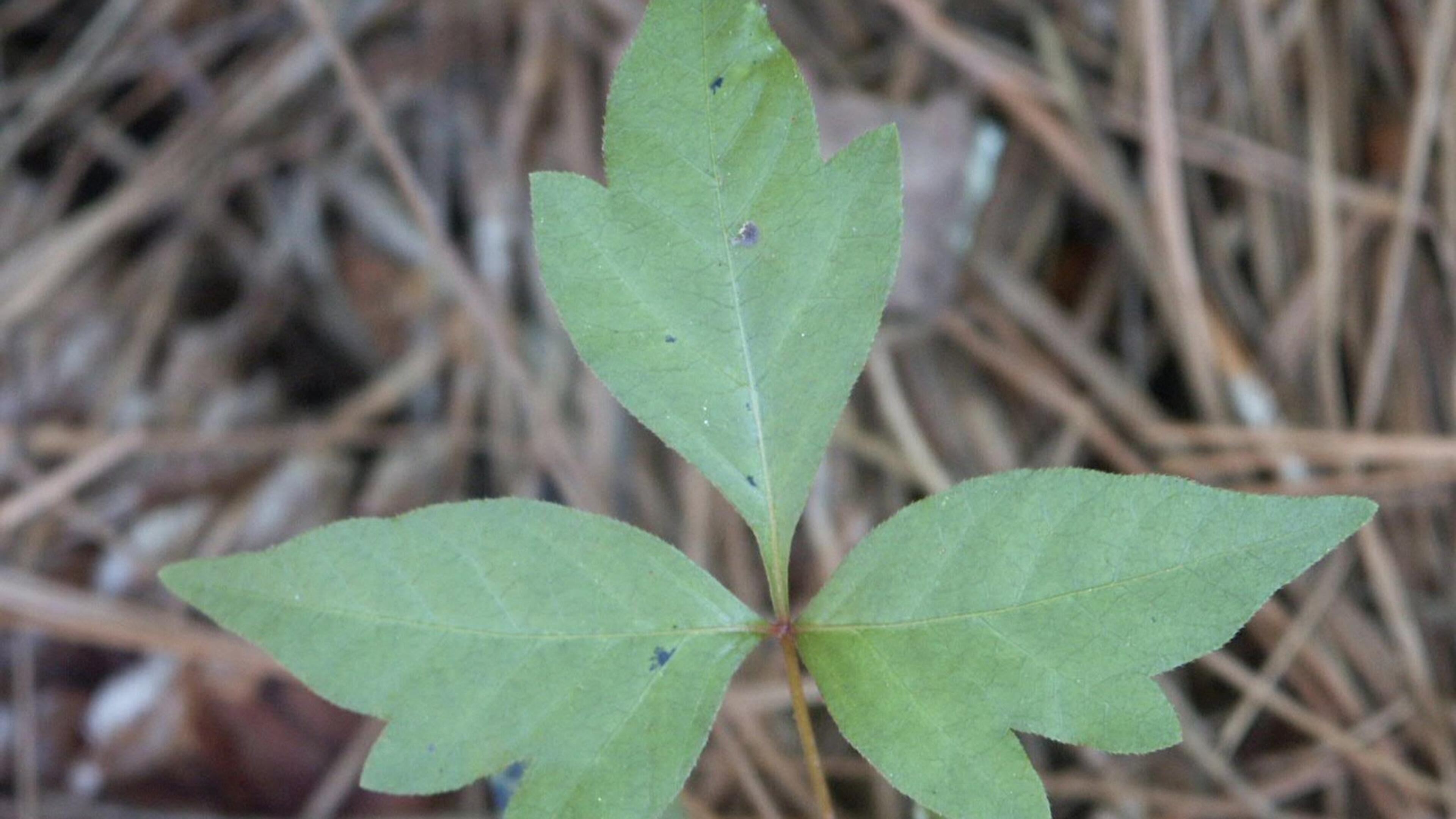Poison ivy can be controlled organically

Q: How can I safely remove poison ivy organically?Betty Rice, email
A: If you persistently chop off the leaves, using a hoe or similar, the plant will soon starve to death. Or you could get a 10-gallon plastic garbage bag, put one hand inside and use that plastic-protected hand to grasp and pull the vine firmly. Once the vine is loosened, roots and all, pull the bag back over your hand, thus capturing the vine in the bag with no contact to your skin. If you don't mind using an organic herbicide spray, ammonium nonanoate (Ortho GroundClear) is listed by the Organic Materials Review Institute (OMRI) as suitable for organic gardening. This herbicidal soap dries out leaves, with effects seen in an hour.
Q: We have a shaded backyard with very little sun. We planted the area with dwarf mondo grass 10 years ago. It looks almost as thin now as when it was first planted. Can I improve it or should I just replace it with something else?Jim Huwaldt, Cherokee County
A: If your mondo grass variety only grows a couple of inches high, it will spread too slowly to be of much use in shade. Common mondo grass, Ophiopogon japonicus, spreads easily from individual plants but is 8 inches tall. One mondo grass variety, 'Gyoku-ryu', is extremely dwarf and spreads very slowly. Look for dwarf mondo grass, Ophiopogon japonicus 'Nana'. It grows a few inches taller than 'Gyoku-ryu' but spreads faster.
Q: My husband wants to buy a Vitamix FoodCycler to compost kitchen scraps. I want to be assured that this form of composting is safe.Vanessa Walker, email
A: Fascinating! As I understand it, the machine grinds food scraps into small pieces and then dehydrates them. Hot air from inside the machine is directed through carbon filters, which absorb odors. In a technical sense, the machine doesn't actually compost the food scraps. Composting means breaking food scraps down into nutrients that plants can absorb immediately. But that doesn't mean you can't take the output of the food recycler and mix it into the soil outdoors, where it will compost naturally. I don't think I would use the output for your indoor plants, particularly if you put meat or milk or egg into it. I see no dangers associated with the machine or its output.
Q: How can I prevent my Brown Turkey fig trees from dying back to the ground in the winter? My neighbors have big fig trees and aren't wrapping them.Sean Flynn, Hall County
A: A young fig might need winter protection for a couple of years where you live, particularly if it is completely exposed to the elements, but not after that. Are you sure they are the Brown Turkey variety? Sadly, labeling mistakes are made, particularly if you bought the fig from a big-box store. If it were me, I'd drive around and note who has big fig trees in your neighborhood. Leave a note in their mailbox asking if you can come by and dig some root sprouts this fall. I have never met a gardener who would not share their plants when they have extra!
Listen to Walter Reeves’ segments at 6:35 a.m. on “Green and Growing with Ashley Frasca” Saturday mornings on 95.5 WSB. Visit his website, www.walterreeves.com, follow him on Twitter @walterreeves, on Pinterest, or join his Facebook Fan Page at bit.ly/georgiagardener for more garden tips.

